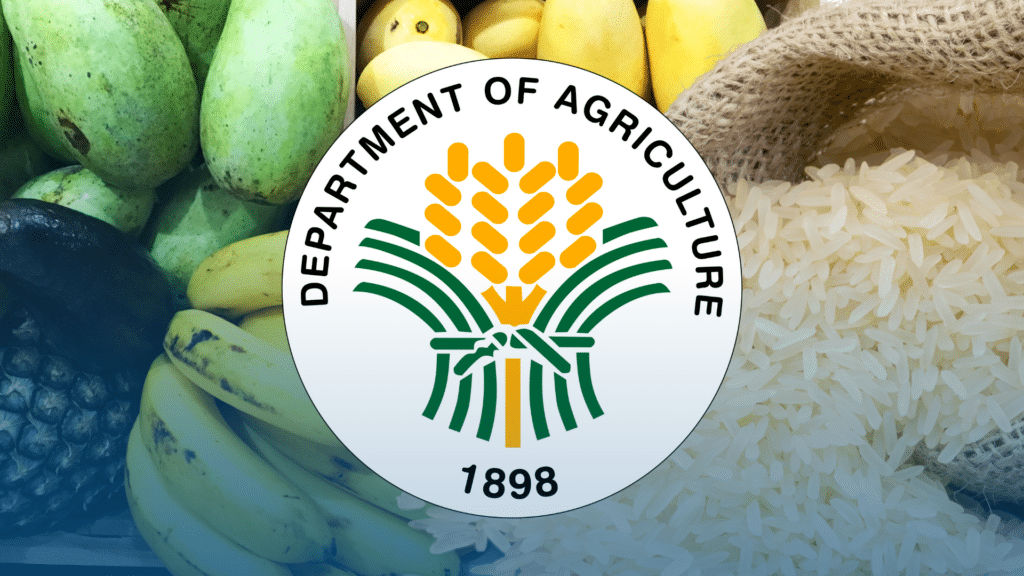Creation of agri price index underway

Department of Agriculture (DA) logo with rice and some high-value crops. INQUIRER FILES
The Department of Agriculture (DA) has formed a technical working group to establish the Daily Price Index (DPI), aiming to prevent economic sabotage and monitor prices of agricultural products across all regions.
The DPI “will serve as a critical tool for determining the value of commodities under investigation for alleged smuggling and hoarding, which will determine if the illegal act warrants economic sabotage,” the DA said in Special Order No. 1804.
The DA is preparing the DPI in compliance with the newly signed Anti-Agricultural Economic Sabotage Act aimed at addressing acts of economic sabotage in the agriculture sector.
READ: Prices of agri products down 5.7 percent in Q3
Republic Act No. 12002 mandates the DA’s Agribusiness and Marketing Assistance Service (AMAS) and Bureau of Agricultural Research (BAR) to establish the DPI within 90 days from the effectivity of this law.
“The AMAS and BAR, in coming up with the prices, shall ensure that the DPI exhibits transparency and accountability and is published on their official websites and social media platforms,” the law states.
The technical working group is responsible for ensuring that the DPI guidelines align with existing agricultural policies and economic strategies.
The panel should ensure that the DPI is used as an essential tool for monitoring the prices of agricultural commodities and preventing economic sabotage. Additionally, it will evaluate the proposed guidelines for the creation and maintenance of the DPI and recommend these to the agriculture secretary.
Agriculture Undersecretary Asis Perez will chair the panel while Agriculture Assistant Secretary Genevieve Guevarra will be vice chair.
The DA order created a sub-working group to facilitate the establishment of DPI, which will prepare the guidelines for making and maintaining the price index.
Experts and other relevant government agencies will be tapped to formulate the rules. They will find data sources and decide on the manner of collecting and validating data, as well as provide recommendations on data collection methods, reporting standards and dissemination of information.
It will be tasked with identifying the basket of commodities and product specifications and developing the statistical methods for computing and the mechanism for releasing the DPI.
The Anti-Agricultural Sabotage Act signed by President Ferdinand Marcos Jr. in September considers smuggling and hoarding of agricultural products as economic sabotage when the value of goods exceeds P10 million.
Agricultural products covered by the law include rice, corn, beef and other ruminants, pork, poultry, garlic, onions, carrots, other vegetables, fruit, fish, salt and other aquatic products in their raw state.
The law classifies smuggling, hoarding and cartel operations involving agricultural products as economic sabotage.
Violators are levied with fine five times higher than the value of smuggled or hoarded agricultural products, in addition to life imprisonment.
